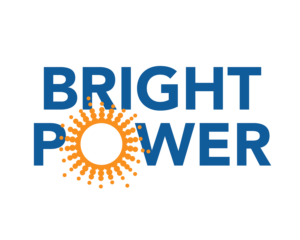I recently started work for the data team at Bright Power, a company with a mission to help meet and track energy efficiency needs for various multifamily building clients in an effort to combat climate change. What drew me to Bright Power was their clear commitment to that mission, so you can imagine my excitement upon receiving their offer to intern on the data team, an opportunity that will allow me to develop practical skills to carry with me and contribute to the company’s drive to create a more sustainable future.
Naturally, as we’re still in the middle of a worsening global pandemic, I’ve been working remotely for the past month-and-a-half. I’m sure many can relate, but this has benefits and drawbacks. Among the benefits, I have a 30 second commute to my desk and I can make coffee whenever I want! The downside is that starting a new job is very difficult in a remote setting. You can’t interact with coworkers daily, it is basically impossible to get hands-on training, and there’s no real sense of camaraderie without coworkers around.

Thankfully, my team at Bright Power had several months now to work out the kinks and I feel fortunate that they are keen on regular communication and video conferencing, so we can all have the chance to see each other’s faces at least once a day. This is great because this job is technical and requires me to understand and navigate complex data systems.
Prior to this, I had minimal experience working with data or code. I’m an environmental policy student, after all. However, increasingly jobs are becoming more tech-based, and having a coding or data background can only help build a strong foundation for my career. And while the first week or two was a little rough, I was able to quickly pick up everything I needed to be successful.
The work we do can be summed up as follows: we help get utility data from the utility providers (or bill payers) to our energy analyst team so we can track year-over-year energy efficiency performance of properties. Some of these properties are being tracked to comply with green loan programs wherein lenders will give borrowers a cut on interest rates if they retrofit their properties with energy saving measures. Much of my time is spent going through the utility data “pipeline” trying to figure out why data isn’t flowing, or how to start it flowing.
What has been crucial about this experience for me so far is the various technical skills I’ve been learning. This is in addition to general logistical and administrative skills: working better as a team, organizing meetings effectively, delegating tasks and adhering to deadlines, etc. Thus far, I’ve worked with:
- dBeaver/MySQL
- Postman/API
- Jira
- Salesforce
- Our company’s proprietary “Energy Score Cards” system
This breadth of programs and software I’m working with has allowed me to gain insight into how they work with each other and these programs could be used in the future at other jobs. While I’m not getting the same depth I might if I was working exclusively in one language or program, this approach is much more practical, allowing me the freedom to explore in-depth only what interests me.
It can be easy to get mired in the data and all of the different programs in this vast data pipeline. Sometimes, it’s nice to have a reminder why we’re doing the work we do. Thankfully, my team has a biweekly “On Mission” meeting that I implore every company to do. It helps us all begin to see the forest instead of the trees and bring our attention to the larger struggle against climate change. There is plenty else to like about company culture, from the friendly atmosphere of all the different Slack channels to the general culture of acceptance that is so important for LGBTQ+ individuals such as myself.
Overall, my internship has been a blast. I may occasionally lose myself in the weeds of the work, but the team makes sure to pull us all up when that happens. All the technical and professional development training doesn’t hurt, either.


